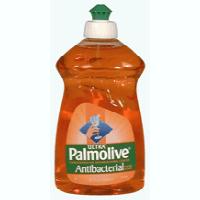Last updated on August 20th, 2022 at 09:36 pm
While researching a super secret project here at SafeMama™, I came across some interesting information on yet another ingredient we should all be avoiding. I bet you’re thinking, gee, Statia, what’s next, you’re going to tell us to wipe our collective hineys with bits of organic bark and leaves infused with rosemary?” Well, sure, because don’t you know that your toilet paper is bleached and that it probably causes cancer? But I’ll get to that another day.
The ingredient in question, is glycol. Mainly all glycols, but specifically for this post, Propylene glycol. Propylene glycol is a thickening/filling agent derived from glycerin and is in everything from store bought hair dyes to many of your natural deodorants. Even though they don’t use parabens and aluminum, they’re still using a toxic chemical as a thickener for their product.
Propylene glycol has been determined as “generally safe for use” by the FDA for both food and cosmetic use. Yet, it raises your risk of cancer, carries toxins that affect reproduction, is a known allergen and eye irritant and is also toxic to your immune system. Sounds swanky, no?
As with many chemicals, the oral toxicity is very low, yet, if you rub it on your skin, you run the risk of any or all of the above-mentioned. And it has such a wide variety of uses, such as: toothpaste, sexual lubricant, a carrier in (most likely phthalate ridden, no doubt) fragrance oils), antifreeze and more. One line in a wikipedia article really stood out as to exactly why I wouldn’t want this in any of my, well, anything:
Post menopausal women who require the use of an estrogen cream may notice that brand name creams made with propylene glycol often create extreme, uncomfortable burning along the vulva and perianal area. In these cases, patients can request that a local compounding pharmacy make a “propylene glycol free” cream which is much more tolerable.
Now why would I want to put something that causes vulvar burning, in my mouth (see above re: toothpaste)?
This is another reason why it’s important to read all of your labels. Chances are if the word looks gross to pronounce, it’s probably gross to put it in or on your body.



